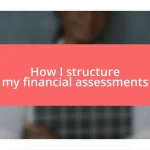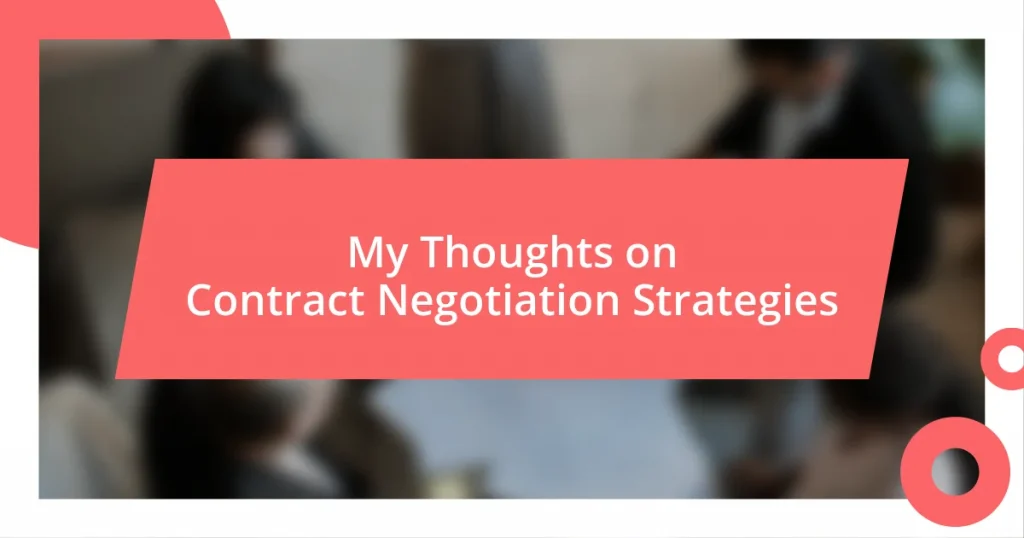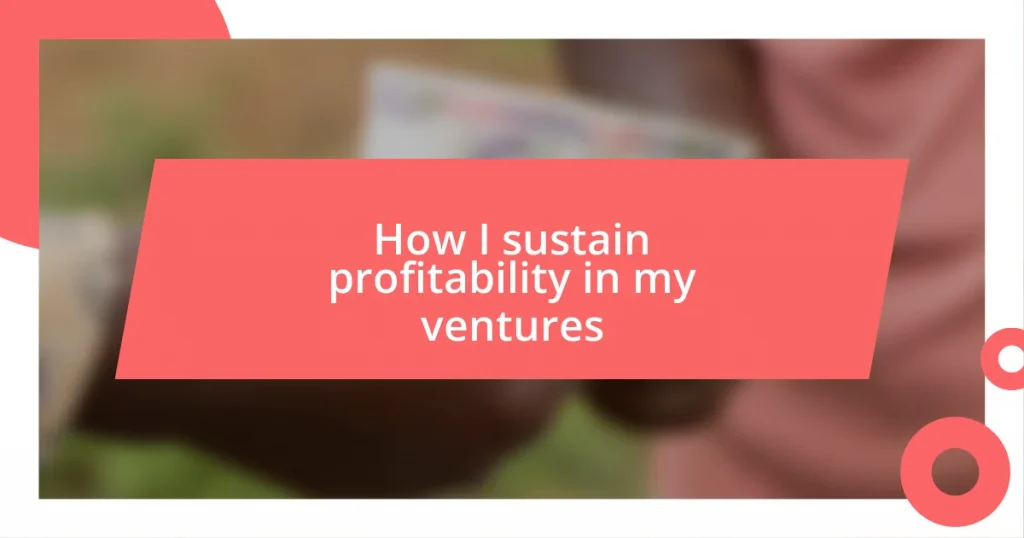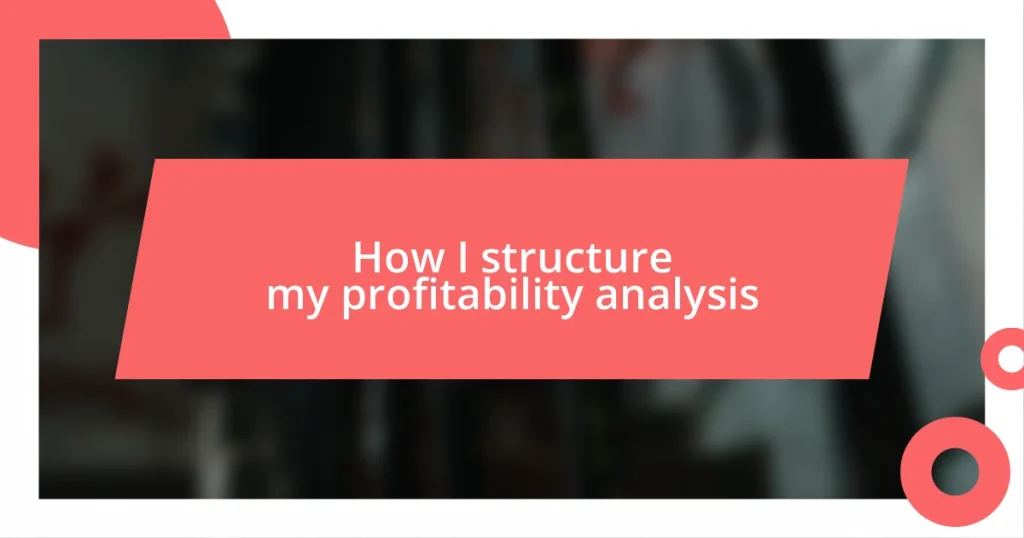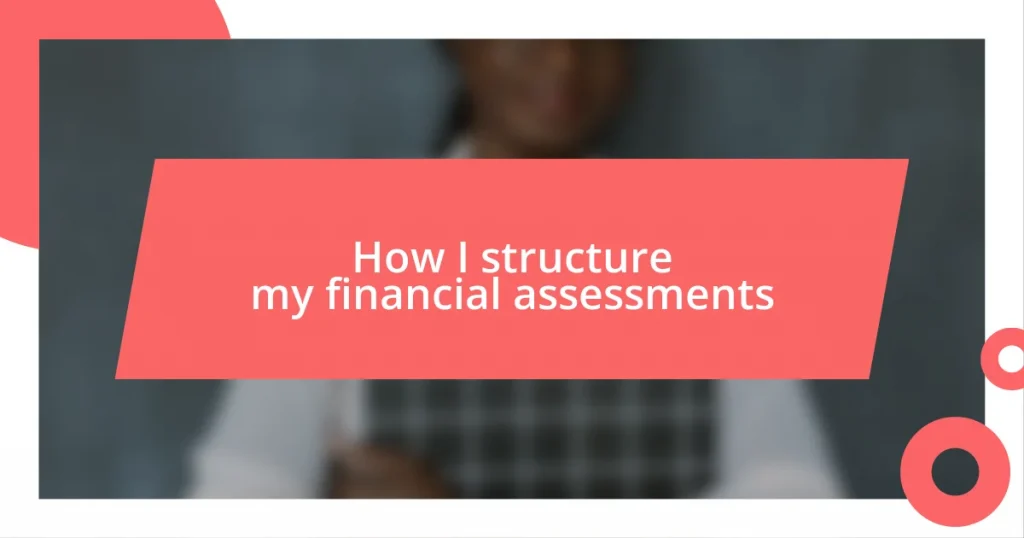Key takeaways:
- Effective preparation, including objective setting and researching, lays the groundwork for productive negotiations and empowers the negotiator.
- Building rapport and maintaining transparency fosters trust, making it easier to navigate objections and reach mutual understanding.
- Evaluating negotiation outcomes helps identify growth opportunities, emphasizing the importance of reflecting on both personal and counterpart motivations.
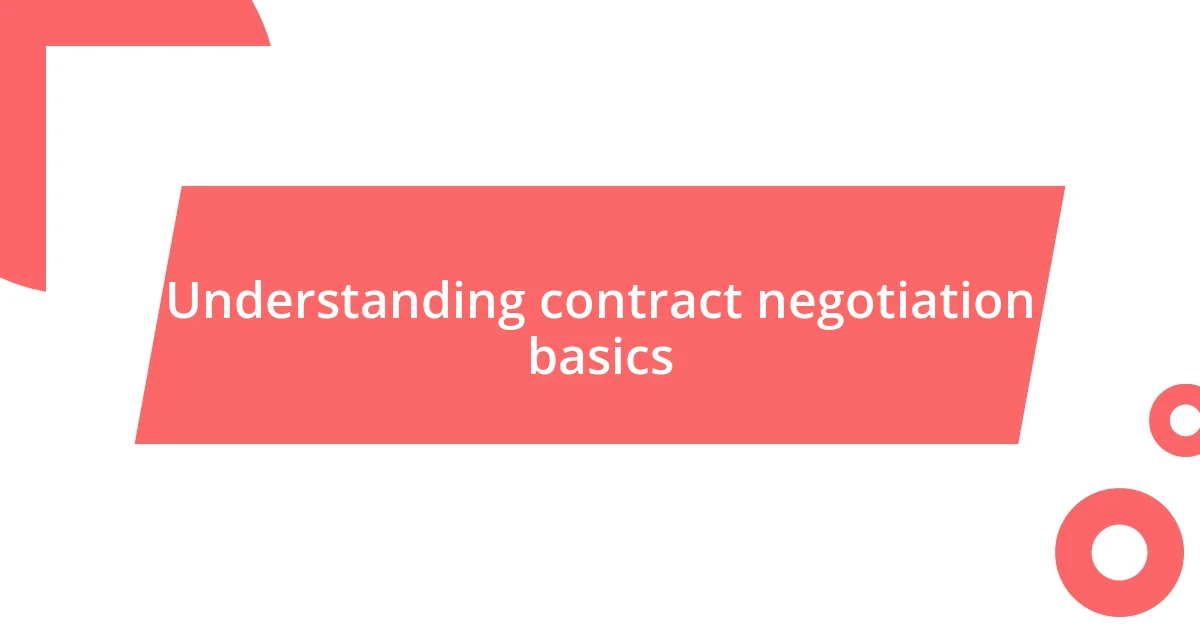
Understanding contract negotiation basics
When diving into contract negotiation, I think it’s crucial to understand the key elements that shape the outcome. For me, clarity is everything. Ask yourself, what are the specific terms that matter most to both parties? Recognizing these can turn a stressful negotiation into a productive dialogue.
I’ve always found that active listening makes a world of difference. I remember a time when I overlooked a minor detail in a contract, thinking it was insignificant. It turned out to be a sticking point for the other party. Has that ever happened to you? It’s a perfect example of how understanding nuances can help avoid unnecessary friction.
Whether it’s salary, deadlines, or deliverables, articulating your needs while being responsive to the other side is essential. Reflecting on my own experiences, I’ve seen that flexibility often leads to creative solutions. What strategies have worked for you in the past? These interactions can paint a clearer picture of what both parties are truly hoping to achieve.
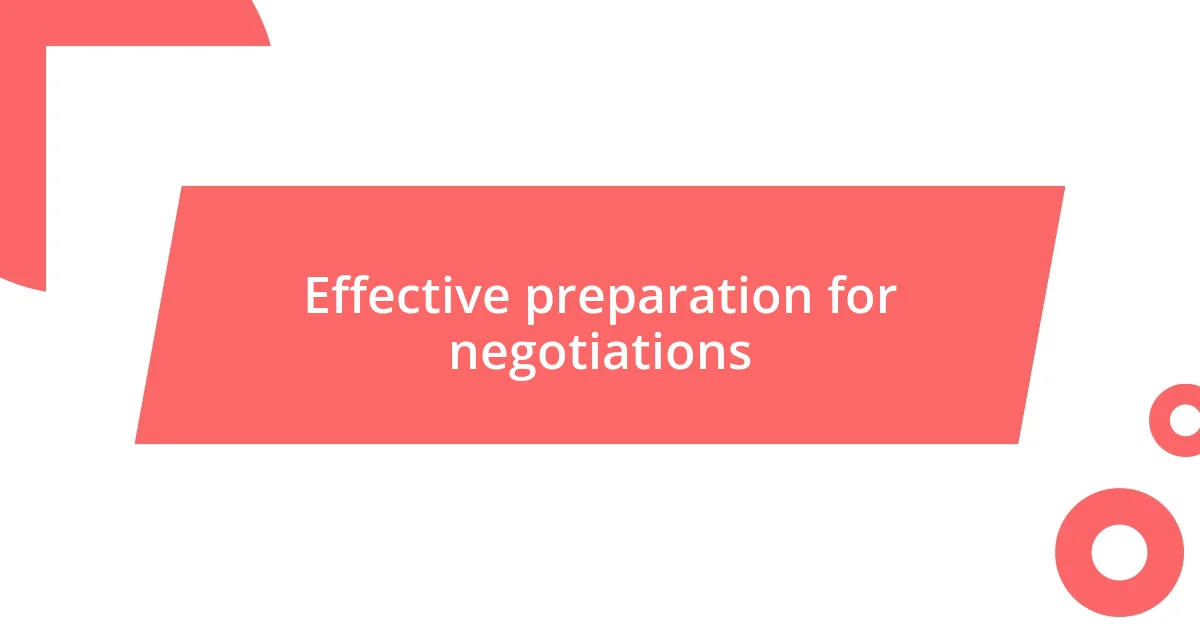
Effective preparation for negotiations
Effective preparation is the cornerstone of successful negotiations. I’ve learned that knowing your objectives and the other party’s priorities often sets the stage for a productive discussion. There’s a memory of a high-stakes negotiation where I compiled all relevant data beforehand. That preparation allowed me to clearly articulate what I wanted while addressing their concerns. It transformed the negotiation from a clash of egos into a collaborative effort to find common ground.
Conducting thorough research before entering negotiations is something I cannot stress enough. Once, I spent hours scouring competitor contracts, preparing additional context that lent credibility to my position. Having that information at my fingertips gave me the confidence to propose terms that were not only reasonable but also well-supported. Have you ever walked into a negotiation without solid facts? It can feel daunting, but preparation turns that uncertainty into empowerment.
Lastly, visualizing potential scenarios also plays a significant role in my strategy. I often create mental images of how negotiations could unfold—everything from best-case to worst-case scenarios. This practice equips me to navigate unforeseen challenges effectively. Once, I walked into a meeting expecting a cooperative spirit, only to face resistance from the other side. Fortunately, having mapped out my response strategies helped me address their objections calmly. My experience has shown that effective preparation makes the unpredictable manageable.
| Preparation Strategy | Benefits |
|---|---|
| Objective Setting | Clarifies goals and objectives for both sides |
| Research | Informs negotiations and provides confidence |
| Scenario Visualization | Prepares for unexpected challenges |
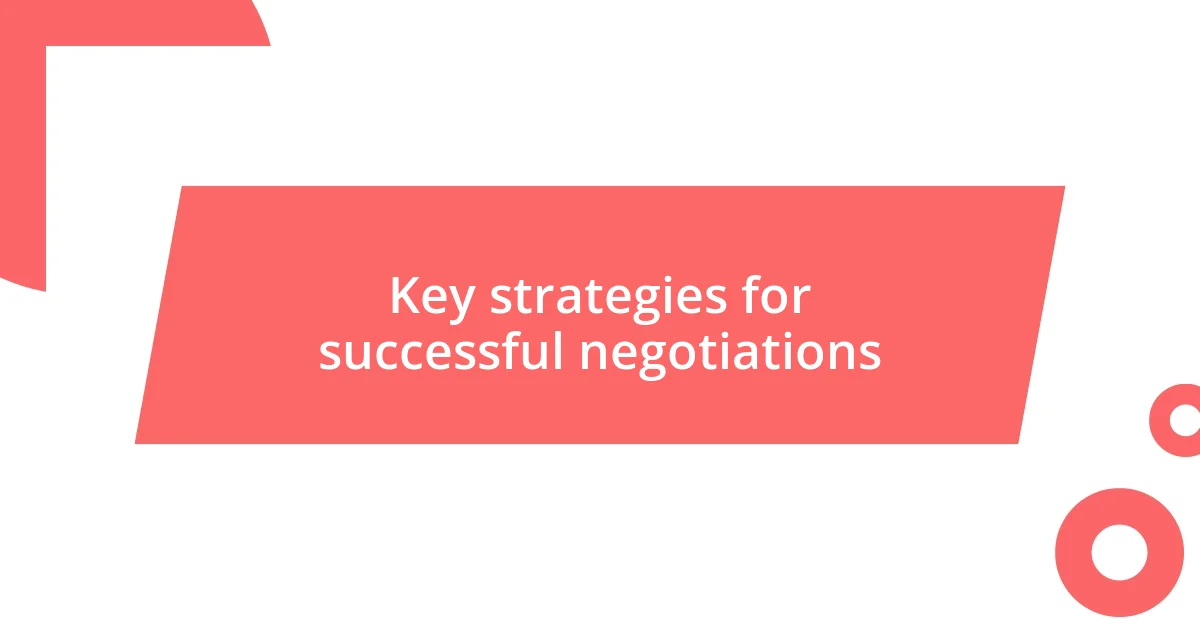
Key strategies for successful negotiations
Key strategies for successful negotiations
One key strategy I swear by is establishing a rapport with the other party. I remember a time when I spent extra moments discussing our mutual interests before diving into the numbers. That simple connection fostered a more open environment and made it easier to discuss opposing viewpoints. Building that personal bridge can turn a negotiation into a more comfortable conversation, leading both sides closer to mutual understanding and agreement.
Moreover, I’ve found that being transparent about your limitations is incredibly powerful. During one negotiation, I openly addressed a budget cap that restricted my offers. This honesty encouraged the opposing party to share their own constraints, helping us brainstorm solutions together. Being forthcoming doesn’t mean showing weakness; in fact, it often cultivates trust.
- Build Rapport: Foster a personal connection to ease the negotiation atmosphere.
- Be Transparent: Share your limitations to encourage mutual understanding and trust.
- Remain Calm Under Pressure: Staying composed helps maintain a constructive dialogue.
- Focus on Interests, Not Positions: Identify the underlying needs rather than just stated demands to find common ground.
- Practice Empathy: Putting yourself in the other party’s shoes can lead to innovative solutions.
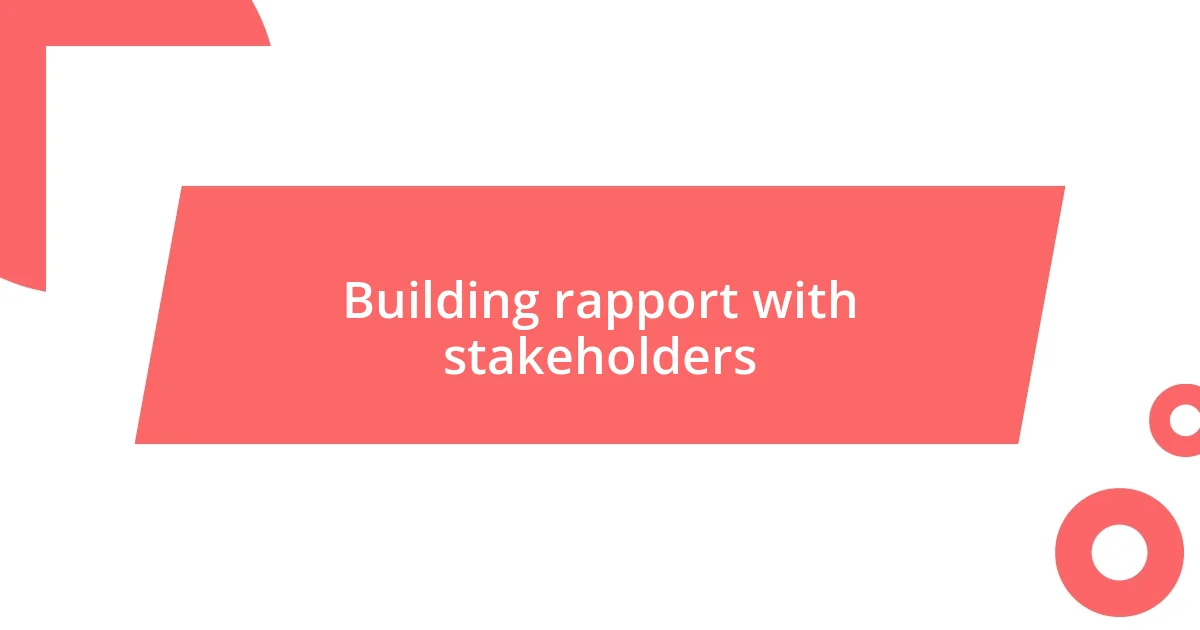
Building rapport with stakeholders
Building rapport with stakeholders is essential for smooth negotiations. Think about a time when you felt understood and valued in a discussion. I still remember a negotiation where I took the time to learn about the other party’s background and interests. By sharing a story from my own experience that resonated with theirs, we quickly found common ground. It transformed the entire interaction, making it less about the transaction and more about collaboration.
I’ve noticed that active listening is crucial in rapport-building. There was a situation where I genuinely listened as a stakeholder outlined their concerns. By not just hearing, but really understanding their perspective, I could respond in a way that addressed their needs. Can you imagine the difference it makes when someone feels heard during a negotiation? It creates a space where both parties feel comfortable to express their worries and aspirations.
Another powerful approach is to keep the atmosphere light-hearted whenever possible. In one negotiation, I cracked a joke about the complexities of contract language, and it instantly eased the tension. Humor can serve as a bonding tool, helping both sides view each other as partners in problem-solving rather than adversaries. It’s these little moments of human connection that can shift the dynamics dramatically. Have you ever tried using humor in negotiations? It might just surprise you how it can pave the way for more open dialogue.
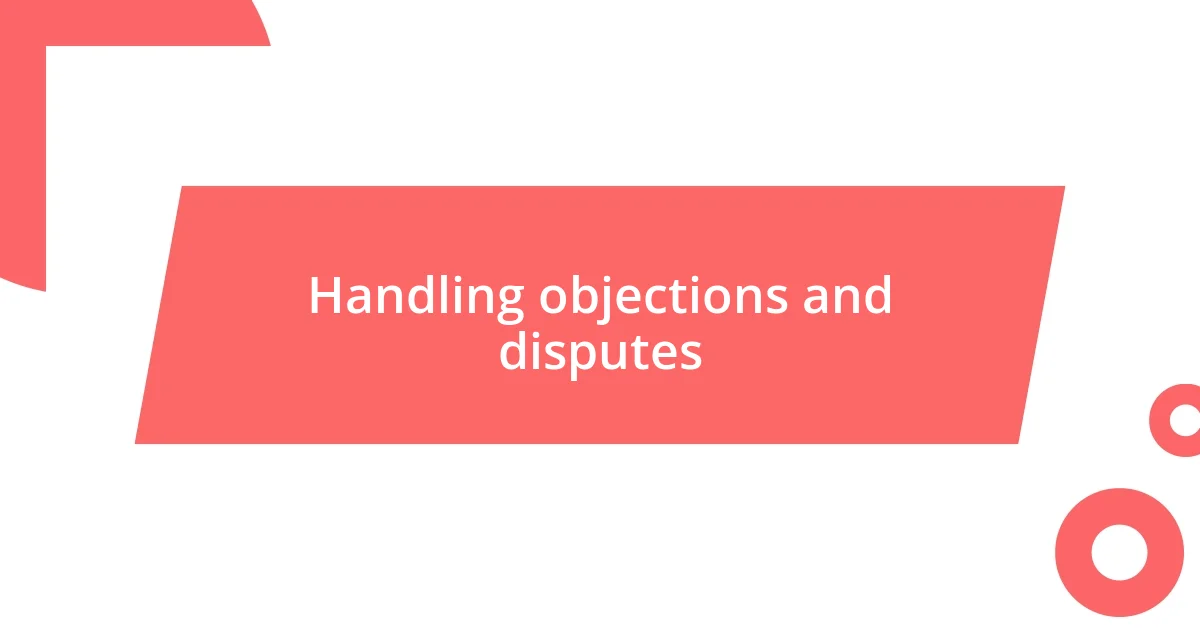
Handling objections and disputes
Handling objections and disputes can often feel like a tightrope walk, but maintaining your composure is key. I recall a particularly tense negotiation where objections began to fly. Instead of reacting impulsively, I took a deep breath and reminded myself to focus on the issue, not the emotions. This approach allowed me to navigate the objections calmly, fostering a space for constructive dialogue rather than defensiveness.
When disputes arise, I’ve found that listening carefully to the other party’s concerns can turn the tide. For instance, during a negotiation, one party raised an unexpected objection about timing. Instead of dismissing it, I took the time to explore their perspective. This not only demonstrated respect but also led to a flexible solution that worked for both sides. Have you ever noticed how addressing objections can transform a prickly situation into a path forward? It’s remarkable what a little empathy can achieve.
One technique I employ is to reframe objections as opportunities for collaboration. I vividly remember a time when a disagreement over project scope turned into an intense discussion. Rather than viewing it as a limit, I suggested we treat it as an opportunity to explore innovative ideas. By shifting the context, we ended up crafting a proposal that exceeded our original expectations. It’s a perspective shift that not only resolves disputes but often enhances outcomes. Isn’t it fascinating how tackling objections head-on can actually lead to greater creativity?
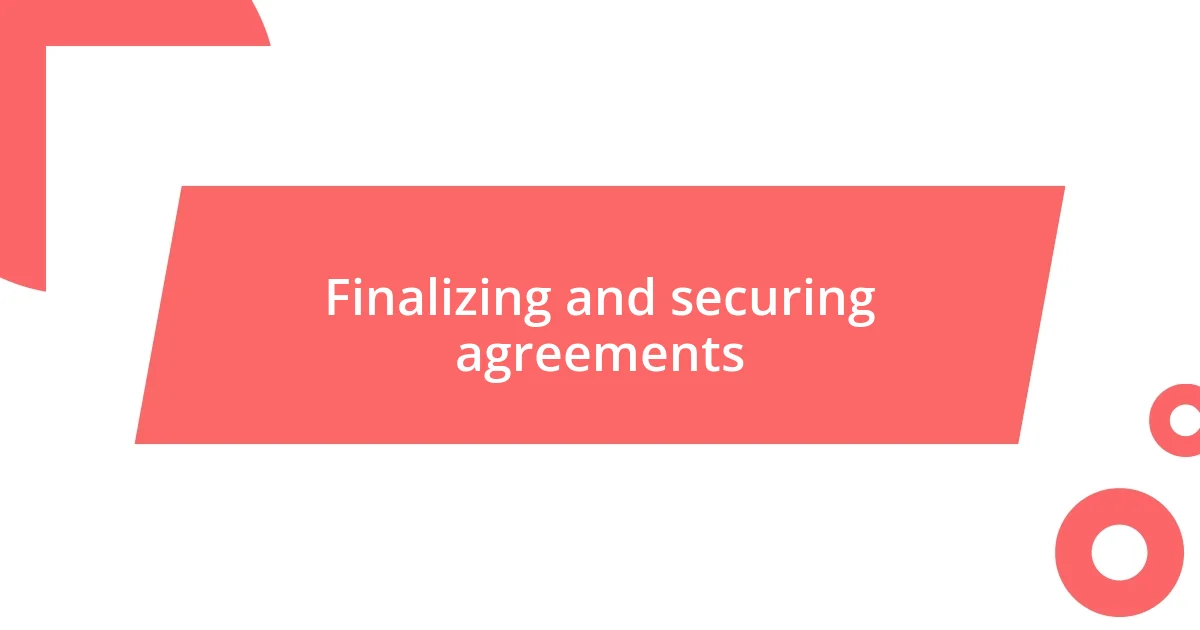
Finalizing and securing agreements
Securing agreements isn’t just about wrapping up a deal, but ensuring that both parties feel fulfilled and confident moving forward. In one instance, after extensive negotiations, I made it a point to summarize all the key agreements clearly. I remember watching the other party’s expressions shift from uncertainty to relief as I laid out our shared understanding. It struck me how vital clarity is—have you ever experienced a misunderstanding that derailed a seemingly solid negotiation? A simple recap can prevent that pitfall.
When finalizing the agreement, I’ve learned to emphasize follow-up actions and timelines. During a recent contract negotiation, I proposed a quick timeline for the next steps, which transformed the conversation from vague commitments to concrete actions. By setting expectations, both parties left feeling secure and engaged. It’s amazing how a small addition to the conversation can lead to a stronger partnership, wouldn’t you agree?
Moreover, I’ve realized the significance of fostering a positive emotional tone at the conclusion of negotiations. I always take a moment to express gratitude for the other party’s time and effort. In a deal where tensions flared, when I acknowledged our collaborative spirit, it felt like a weight lifted off everyone’s shoulders. Wouldn’t it be nice if every negotiation could end on such a high note? Those closing moments can shape the future of the relationship, and I strive to make them memorable and uplifting.
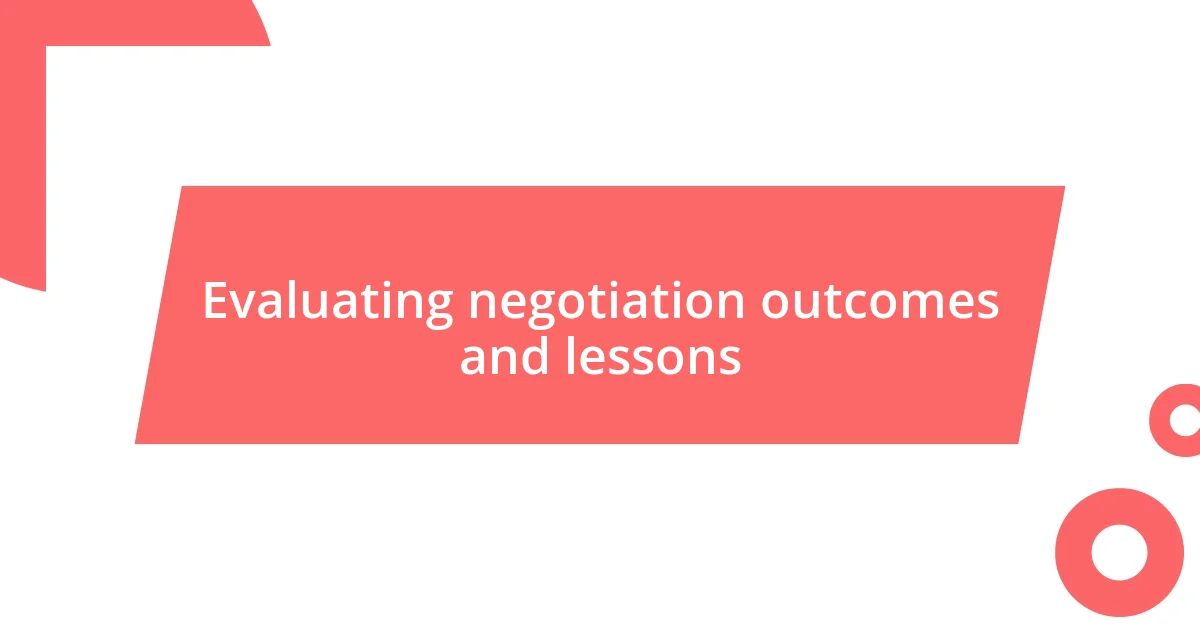
Evaluating negotiation outcomes and lessons
Evaluating the outcomes of negotiations can be an enlightening experience. I remember finishing a deal that felt like a win at first, but as I reflected, I realized there were aspects I could have negotiated more effectively. Did you ever walk away from a negotiation feeling unsure? That initial reflection can reveal opportunities for growth and improve my future strategies.
One lesson that stands out is the importance of understanding the other party’s motivations. In a recent negotiation, I overlooked some subtle cues that hinted at their priorities. Once I realized this post-negotiation, it dawned on me how crucial it is to assess not just my goals but theirs as well. Have you found that missing these signals can cost you a better outcome? I’ve learned that a thorough evaluation often requires revisiting those moments of discomfort to uncover valuable insights.
Finally, I’ve found it beneficial to document and analyze what went well and what didn’t. After wrapping up a complex contract last year, I took a weekend to jot down my thoughts. I mapped out the negotiation phases and noted key decisions. What surprised me was how this exercise clarified my negotiation style. Don’t you think reflecting on experiences like this solidifies learning and prepares us for the next challenge? It’s a rewarding practice that fosters continuous improvement.


